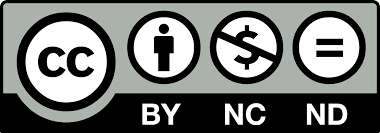Gospodarka cyfrowa, TIK i wzrost gospodarczy w krajach Europy Środkowo-Wschodniej
Łukasz Arendt
Instytut Pracy i Spraw Socjalnych, WarszawaAbstrakt
Artykuł koncentruje się na zależnościach między technologiami informacyjnymi i komunikacyjnymi (TIK), wzrostem PKB i produktywności w krajach Europy Środkowo-Wschodniej (EŚW). Omawia różne mierniki rozwoju gospodarki cyfrowej/społeczeństwa informacyjnego, podkreślając rolę czynników komplementarnych wobec TIK, które są najważniejsze dla produktywnego wykorzystania tych technologii ogólnego zastosowania. W artykule przedstawiono wpływ postępu technicznego, indukowanego rozwojem TIK, na źródła wzrostu gospodarczego, opisano zmiany we wkładzie kapitału TIK, pozostałego kapitału, nakładów pracy i TFP we wzrost PKB w krajach EŚW i UE-15.
Słowa kluczowe:
TIK, gospodarka cyfrowa, wzrost gospodarczy, kraje Europy Środkowo- -WschodniejBibliografia
Ark B. van, Piątkowski M. 2004. Productivity, innovation and ICT in Old and New Europe. International Economics and Economic Policy, 1(2-3): 215-246.
Arvanitis S., Loukis E.N. 2009. Information and communication technologies, human capital, workplace organization and labour productivity: A comparative study based on firm-level data for Greece and Switzerland. Information Economics and Policy, 21(1): 43-61.
Bresnahan T.F., Brynjolfsson E., Hitt L.M. 2002. Information Technology, Workplace Organization, and the Demand for Skilled Labour: Firm- Level Evidence. The Quarterly Journal of Economics, 117(1): 339- 376.
Brynjolfsson E., SaunderA. 2010. Wired for Innovation. How Technology is Reshaping the Economy. MIT Press, Cambridge, Massachusetts - London.
Canberra Manual. Manual on the Measurement of Human Resources Devoted to S&T. 1995. The Measurement of Scientific and Technological Activities. OECD Publications, Paris.
Communication from the Commission to the European Parliament, the Council, the European Economic and Social Committee and the Committee of the Regions. A Digital Agenda for Europe, European Commission, Brussels, COM (2010) 245.
Dimelis S.P., Papaioannou S.K. 2010. FDI and ICT Effects on Productivity Growth: A Comparative Analysis of Developing and Developed Countries. European Journal of Development Research, 22(1): 79-96.
Jorgenson D.W. 2001. Information Technology and the U.S. Economy. American Economic Review, 91 (1): 1-32.
Jorgenson D.W., Griliches Z. 1967. The Explanation of Change Productivity. The Review of Economics and Studies, 34(3): 249-283.
Jorgenson D.W., Stiroh K.J. 2000. Raising the Speed Limit: U.S. Economic Growth in the Information Age. Brookings Papers on Economic Activity, 231(1): 125-236.
Jorgenson D.W., Vu K. 2010. Potential growth of the world economy. Journal of Policy Modeling, 32(5): 615-631.
Lipsey R.G., Carlaw K. 2001. What Does Total Factor Productivity Measure? Study Paper Version 2, Vancouver BC, Simon Fraser University.
Milgrom P., Roberts J. 1990. The Economics of Modern Manufacturing: Technology, Strategy and Organization. American Economic Review, 80(3): 511-528.
Oliner S.D., Sichel D.E. 2000. The Resurgence of Growth in the Late 1990s: Is Information Technology the Story? Journal of Economic Perspectives, 14(4): 3- 22.
Piatkowski M. 2003. Does ICT Investment Matter for Output Growth and Labor Productivity in Transition Economies? TIGER Working Paper Series, 47.
Piatkowski M. 2004. The Impact of ICT on Growth in Transition Economies. MPRA Paper, 29399 (14).
Productivity and growth accounting. 2011. In: OECD Factbook 2011-2012: Economic, Environmental and Social Statistics. OECD Publishing, http://dx.doi.org/10.1787/factbook-2011-26-en.
Skorupinska A., Arendt L. 2015. Productivity, ICT and Complementarities in the CEE countries - the Impact of Crisis. University of Lodz, Lodz (mimeo).
SME Competitiveness Outlook 2015: Connect, Compete and Change for Inclusive Growth. 2015. International Trade Centre, Geneva.
Solow R. 1957. Technical Change and the Aggregate Production Function. Review of Economics and Statistics, 39(3): 312-320.
Solow R. 1987. We'd Better Watch Out. New York Times Book Review, July 12.
Stiroh K.J. 2002. Information Technology and the U.S. Productivity Revival: What Do the Industry Data Say? American Economic Review, 92(5): 1559- 1576.
The Conference Board. Total Economy Database™, May 2015, http://www.conference- board.org/data/economydatabase/
The Global Information Technology Report 2014. Rewards and Risks of Big Data. 2014. Eds. B. Bilbao-Osorio, S. Dutta, B. Lanvin. World Economic Forum, Geneva.
Vries K. De, Erumban A.A. 2015. Total Economy Database. Sources & Methods, https://www.conference-board.org/retrievefile.cfm?filename=TED- SourcesMethods1.pdf&type = subsite (access: 12.12.2015).
Wielicki T. 2008. ICT Training - Key to Closing Digital Divide among Businesses: Case of SMEs in Central California. International Journal of Learning, 14(6): 181-186.
Wielicki T., Arendt L. 2010. A Knowledge-driven Shift in Perception of ICT Implementation Barriers: Comparative Study of US and European SMEs. Journal of Information Science, 36(2): 162- 174.
Yang S., Brynjolfsson E. 2001. Intangible Assets and Growth Accounting: Evidence from Computer Investments. MIT Center for Digital Business, 136.
Instytut Pracy i Spraw Socjalnych, Warszawa
Licencja
Każdy Autor składa oświadczenie, że praca nie była wcześniej publikowana (pod tym samym lub innym tytułem, nie stanowi również części innej publikacji) oraz nie narusza praw autorskich innych osób. Jednocześnie Autor przenosi na wydawcę wyłączne prawo wydania i rozpowszechniania tego utworu drukiem w formie zwartej publikacji czasopisma oraz w formie publikacji elektronicznej.
Czasopismo udostępnione jest na licencji Creative Commons CC-BY-NC-ND






